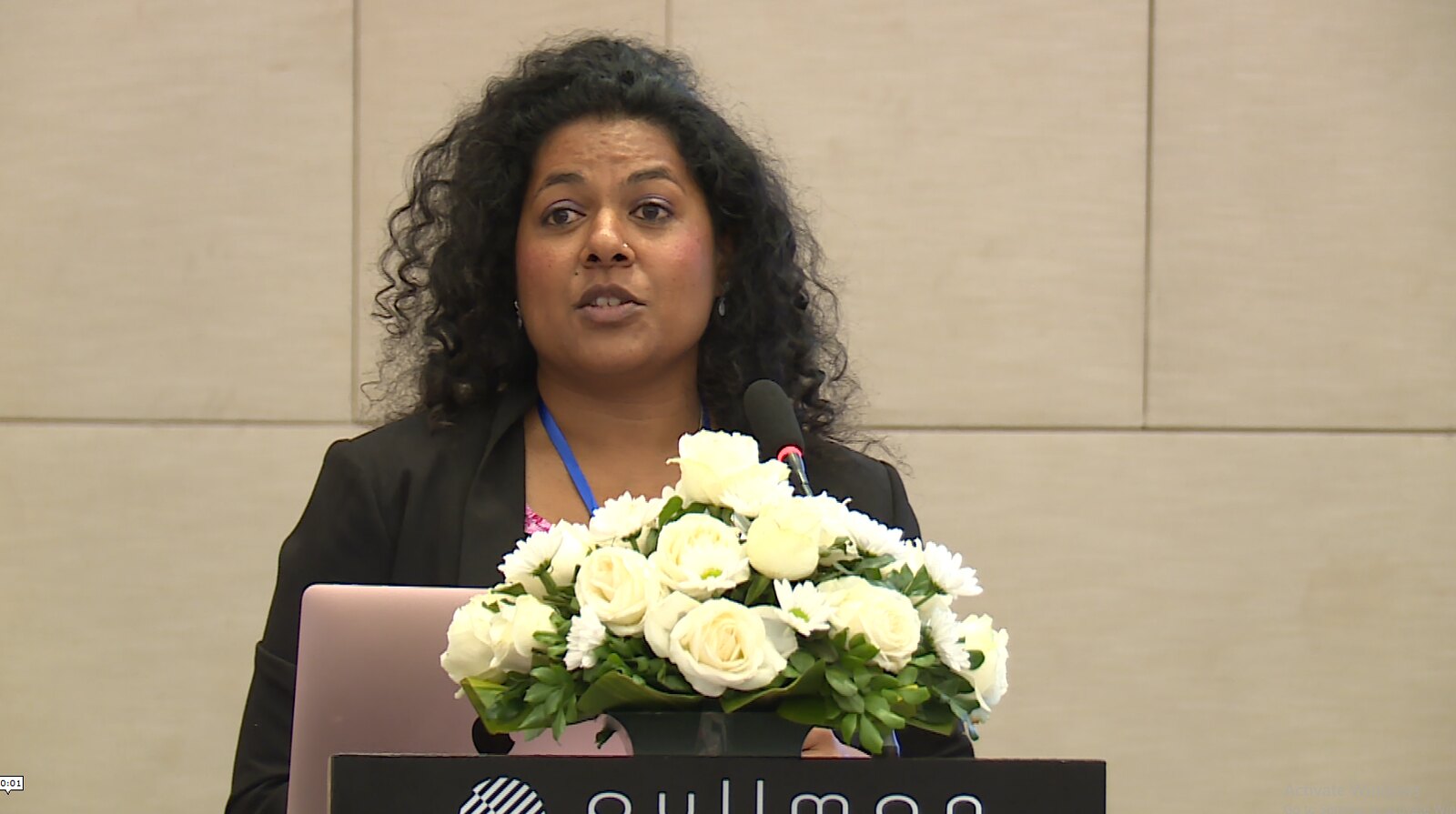
(photo credit: ILRI/Chi Nguyen).
CGIAR AMR Hub is pleased to welcome Arshnee Moodley, an associate professor from the University of Copenhagen in Denmark to lead the CGIAR AMR Hub hosted and led by ILRI. Having completed her undergraduate degree in 2002 from the University of Witwatersrand, South Africa and received her PhD from the University of Copenhagen, Denmark in 2008, she has spent 12 years supervising and teaching students at the University of Copenhagen on infection microbiology, antimicrobial resistance, bacterial typing and non-antibiotic alternatives. ILRI’s bioscience writer, Ekta Patel caught up with her on some quick Q&A’s to get to know her a little better and to better understand her vision for the CGIAR AMR Hub.
Ekta: Arshnee, I would like to begin by congratulating you on taking on this new position and to say that we are very excited to have you join the CGIAR AMR Hub. I wanted to know a little more about why you took on this role which is quite different to what you may be used too?
Arshnee: Thank you very much. I was interested in this position because personally after spending 14 years at the University of Copenhagen I wanted change and a new challenge. Moreover, after learning so much about antimicrobial resistance and how to mitigate antimicrobial resistance in Denmark, who have been on the forefront of addressing this global threat, I want to take all my knowledge and experience and contribute to AMR controlling on my home continent, where the challenges are very different to those in Europe.
Ekta: As an associate professor, you have been carrying out your own research, what are some of the latest projects you have been working on ?
Arshnee: In last five years, I have been mainly involved in projects centered on discovering novel antimicrobial solutions for animals namely; TRAIN-ASAP and CARTNET, which are two Marie Curie funded early stage training networks. In particular, I was involved in the bacteriophage projects. A third project is Antibiophage, another EU funded project to develop and test a bacteriophage cocktail to treat colibacillosis in poultry. At UCPH, we developed eight cocktails, which in December 2019 we tested two for their in vivo efficacy.
Ekta: What are you most concerned about when it comes to AMR in low- and middle-income countries (LMICs)?
Arshnee: In high income countries like Denmark and other EU countries, AMR is an important topic that has been on the animal and human health agenda for more than 20 years. For this reason a number of initiatives and policies are in place to reduce antimicrobial use e.g. ban or restrictions of certain antibiotics, perform routine AM use and AMR surveillance, and investments in AMR research e.g. discovery of new antimicrobial solutions. Unfortunately, in LMICs, AMR is yet another complex health challenge that is further impeded by the fact that it is faceless and insidious problem. In LMICs we also don’t fully understand the circulating AMR levels in animal and human populations, nor do we know about the quantity and quality of antibiotics that are available and for what purpose it is being used in agricultural systems.
Ekta: The CGIAR AMR Hub serves as a platform and a focal point to disseminate information on AMR with our CG partners and with those in the regional and national level. How do you propose we harmonize these various pockets of information from the different partners?
Arshnee: To tackle AMR, we ultimately need to change peoples’ attitudes and behavior in all facets of our society that can only be accomplished through awareness and education. As scientists, we have a social responsibility to share our research and inform the greater public. My ambition is that the CGIAR AMR Hub collates all our AMR research supplement with other research and package this information to be shared not only with those that can bring about the necessary changes e.g. policy makers but also through active engagement and education of our veterinarians, doctors, pharmacists and the public.
Ekta: What is your vision for the CGIAR AMR Hub and what are some of the things that the partners can expect in the coming years?
Arshnee: My vision is that the Hub is recognized in the CG system and amongst our global partners as the “go to” place for AMR knowledge and expertise in agriculture in LMICs. Furthermore, we are establishing a state-of-the-art antimicrobial susceptibility testing (AST) laboratory that will available to all our partners, with the goal to support our AMR projects and assist our regional partners. Accurately performed AST is crucial for treatment decisions, AMR surveillance and evaluating the effects of any interventions.
Read her bio here